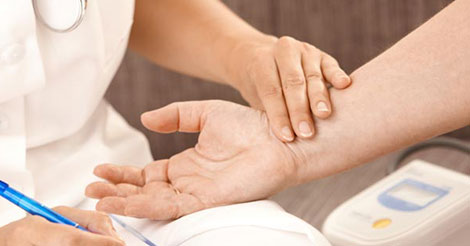Cholesterol is a type of fat that is found in the blood. It is vital to have some cholesterol because it helps the body make hormones and Vitamin D. However, too much cholesterol can cause health problems, hence the need to consult Dr. Kyle Scarborough to learn the best way to manage high cholesterol.
What does high cholesterol mean?
Cholesterol levels are measured in milligrams per deciliter (mg/dL). A level of 240 mg/dL or above is considered high cholesterol.
What causes high cholesterol?
Many factors can contribute to high cholesterol, including:
- Eating a diet high in saturated and trans fats
- Not getting enough exercise
- Smoking
- Being overweight or obese
- Having a family history of high cholesterol
Some people are born with high cholesterol, while others develop it as they age. Various factors contribute to high cholesterol, including diet, lifestyle and genetics. Managing high cholesterol is essential for preventing heart disease and other severe health conditions.
There are two types of cholesterol: high-density lipoprotein (HDL) and low-density lipoprotein (LDL). HDL is known as the “good” cholesterol because it helps remove LDL from the arteries. LDL is known as the “bad” cholesterol because it can cause plaque to build up in the arteries, leading to heart disease and other health conditions.
Managing high cholesterol is essential for preventing heart disease and other severe health conditions. Various methods can lower cholesterol, including lifestyle changes, diet modifications and medication.
The following are five expert tips for managing high cholesterol:
- Make changes to your diet
If you have high cholesterol, it is crucial to change your diet. You should avoid foods high in saturated and trans fats, as these can increase your cholesterol levels. Instead, opt for foods low in fat and cholesterol, such as fruits, vegetables and whole grains.
- Exercise regularly
Exercise is another critical part of managing high cholesterol. It helps to burn off excess cholesterol and keeps the heart-healthy. Try to exercise for at least 30 minutes, five times a week.
- Lose weight if needed
If you are overweight or obese, one of the best things you can do for your health is to lose weight. Carrying excess weight puts added stress on the heart and can contribute to high cholesterol levels.
- Take medication if needed
If lifestyle changes and diet modifications do not help lower your cholesterol levels, your doctor may prescribe medication. There are a variety of medications available to treat high cholesterol, so talk to your doctor to find the best option for you.
- Monitor your cholesterol levels
It is crucial to monitor your cholesterol levels regularly to track your progress and make necessary adjustments. You can get your cholesterol levels checked by your doctor or through a home testing kit.
High cholesterol is a serious health condition, but it can be managed with the help of a specialist from Family Life Medical for comprehensive care for all your medical needs. Ensure you follow these tips to get started on the road to better health.






